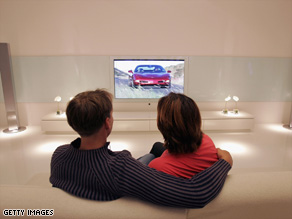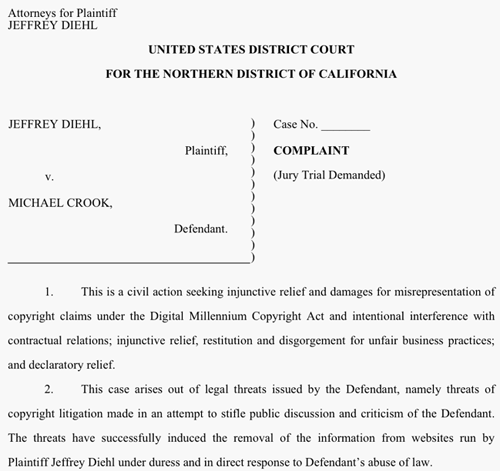(CNET)
-- Television as we know is about to change drastically in the U.S. in
February when broadcasters switch solely to transmitting digital
signals. And even though there are many benefits to this transition,
there are also a few downsides.

On February 17, U.S. broadcasters will begin transmitting their TV signals only in digital format.
Here's the lowdown on what you can expect from the new digital TV service, the good, the bad, and the ugly.
First, let's start with the good. On February 17, broadcasters
throughout the country will flip a switch turning off their old analog
TV transmitters, and they will begin transmitting their TV signals only
in digital format. Over 90 percent of TV stations today already
broadcast both analog and digital stations, which means that consumers
don't have to wait until February to test and tweak their TVs to get
digital TV.
For the most part, the switch to digital TV will benefit all Americans, regardless of whether they watch over-the-air TV.
Digital signals use wireless spectrum much more efficiently than analog
signals, which is why the government mandated the switch in the first
place. Congress set the February 17, 2009, deadline so that the
government could free up wasted spectrum so that it could be used to
build more robust emergency wireless networks, as well as provide the
private sector with more spectrum that could be used to develop new
wireless broadband services.
The government has already
auctioned off most of the unused spectrum. And after February, service
providers who won licenses in those auctions will be able to get to
work building their next-generation wireless networks.
For over-the-air TV viewers, the switch to digital also has many
benefits, including sharper pictures, better sound quality, and more
content. Using analog signals, broadcasters can only transmit one
channel of content at a time.
But with digital signals,
broadcasters can transmit multiple channels at once. In fact, many
broadcasters have already launched three or four separate digital
channels, each carrying programming of interest to diverse communities.
And because there is more bandwidth available, broadcasters are also
transmitting some of these channels in high-definition.
In some
cases if consumers have a high-definition TV, they'll even be able to
get some HD channels for free. For example, all the major
networks--ABC, CBS, Fox, and NBC--transmit some shows over the air in
HD. This means that many consumers will be able to access HD content
without subscribing to a pricey cable package.
"Digital
broadcast will vastly improve free TV viewing," said Graham Jones, the
director of communications engineering for the science and technology
department of the National Association of Broadcasters. "All the
networks are broadcasting in HD, and viewers can receive it for
nothing. They don't have to pay a cent. And with modern receivers and
antennas, reception is very solid."
Better for many, not all
But with the good, also comes some bad. Unfortunately, not everyone in
every corner of the U.S. will experience all the great benefits of
digital TV. Because analog signals transmit over longer distances than
digital signals, some over-the-air viewers living in rural areas may
find that they do not get all the same channels they were able to when
they received analog TV.
This scenario is mostly true for people
who already receive weak analog TV signals. For example, if someone
generally gets a snowy or fuzzy picture using an antenna to receive an
analog TV signal, there's a good chance that the viewer won't be able
to receive the digital signal at all.
"Some people may have been
able to put up with a poor analog signal, because the receiver still
received the transmission, albeit in a fuzzy form," Jones said. "But if
a digital signal is weak, the receiver can't decode it, and the
transmission stops, which means people simply get a blank screen."
This is exactly what happened to some viewers in Wilmington, North
Carolina, when the Federal Communications Commission and local
broadcasters tested turning off their analog signals earlier this year.
Broadcasters have tried to compensate for this issue by boosting
transmission power, but Jones said because digital and analog signals
are broadcast at different frequencies it may be difficult to replicate
broadcasts exactly, which means some people may be left without some
channels they could have received with analog transmissions.
The
issues won't be limited to rural consumers. Some city dwellers may also
have trouble receiving certain channels. Even though people living in a
city such as New York or Chicago will likely be able to receive strong
digital broadcast signals, they could fall victim to other issues that
preclude them from receiving certain channels further up the dial. The
reason is simple. Channels broadcast at higher frequencies don't go
around buildings or through walls as easily, and this could disrupt
transmission.
Consumers may have to do a little research
But consumers shouldn't throw their hands up in defeat too quickly.
With a little investigation and a few extra dollars spent on new
equipment, even viewers in some challenging geographies could still
receive a good quality digital TV experience.
So what's a
consumer to do? First, consumers who rely on over-the-air broadcasts
need to determine whether they want to keep their old analog TVs or
invest in new digital or high-definition TVs. If a consumer keeps his
old analog TV, the government is offering $40 coupons to help defray
the cost of buying a digital converter box, which attaches to the TV
and costs about $60.
These boxes essentially turn an old TV
into one that can view digital signals. If he is already getting a good
analog signal, he'll likely be able to keep the same antenna for the
digital service. But if he was already getting a poor signal, Jones
recommends upgrading to a better antenna.
But Jones also
emphasizes that to get the best digital TV experience consumers should
buy a new digital or high-definition TV. As of March 1, 2007, all
television reception devices, which includes TVs, VCRs, and DVRs, sold
in the U.S. have been required by law to contain a digital tuner. And
with smaller HDTVs selling for as little as $400 or $500, high
definition has also become an affordable feature.
But even with
a new digital TV, Jones said that consumers will still need an antenna
to receive the over-the-air signals. For help in determining which kind
of outdoor antenna you might need, check out AntennaWeb.org. This is a
Web site set up by NAB and the Consumer Electronics Association that
allows consumers to enter their address and provide details about their
immediate surroundings, such as how many trees or tall buildings are
nearby, to help determine which type of antenna would be best.
Jones also recommends that before consumers buy a new antenna they try
their old one first. Several retailers, including Best Buy, are
offering workshops around the country to provide information to
consumers. There is also information on the Web site DTVanswers.com.
And Jones suggests that consumers call their local broadcast stations
directly to figure out in which direction they should point their
antenna for the best reception. Local broadcasters will also be able to
provide information about whether consumers are even within range to
receive the new digital signal.
"There are some 1,700
broadcasters in the U.S.," Jones said. "The local stations will know
better than we will how to help viewers in their specific region. So if
people have questions, they should call their local broadcasters. And
these broadcasters should be available and able to help them."
Several local stations have already set up hotlines for consumers to
call. And broadcasters around the country have been "soft" testing the
transition. During these tests, broadcasters turn off their analog
signals. If consumers are still trying to view the channel using an
analog TV, a screen will pop up where the program had been informing
viewers of the deadline and how to get ready for the digital switch.
A bill passed in the U.S. Senate last week that would require some
broadcasters to offer this information screen to viewers for 30 days
after the February 17 deadline. The measure must still pass the House
of Representatives before it becomes law.
But even if it does
become law, Jones said that not every broadcaster would be able to
continue broadcasting the message over its analog channel, because as
of that date, new spectrum holders will have access to those airwaves.
Instead, he has been encouraging viewers not to wait until the deadline
to test their digital TV readiness.
"Broadcasters are already transmitting digital signals today," he said.
"So there's no reason for people to wait until February to make their
equipment tweaks and start benefiting from digital."




